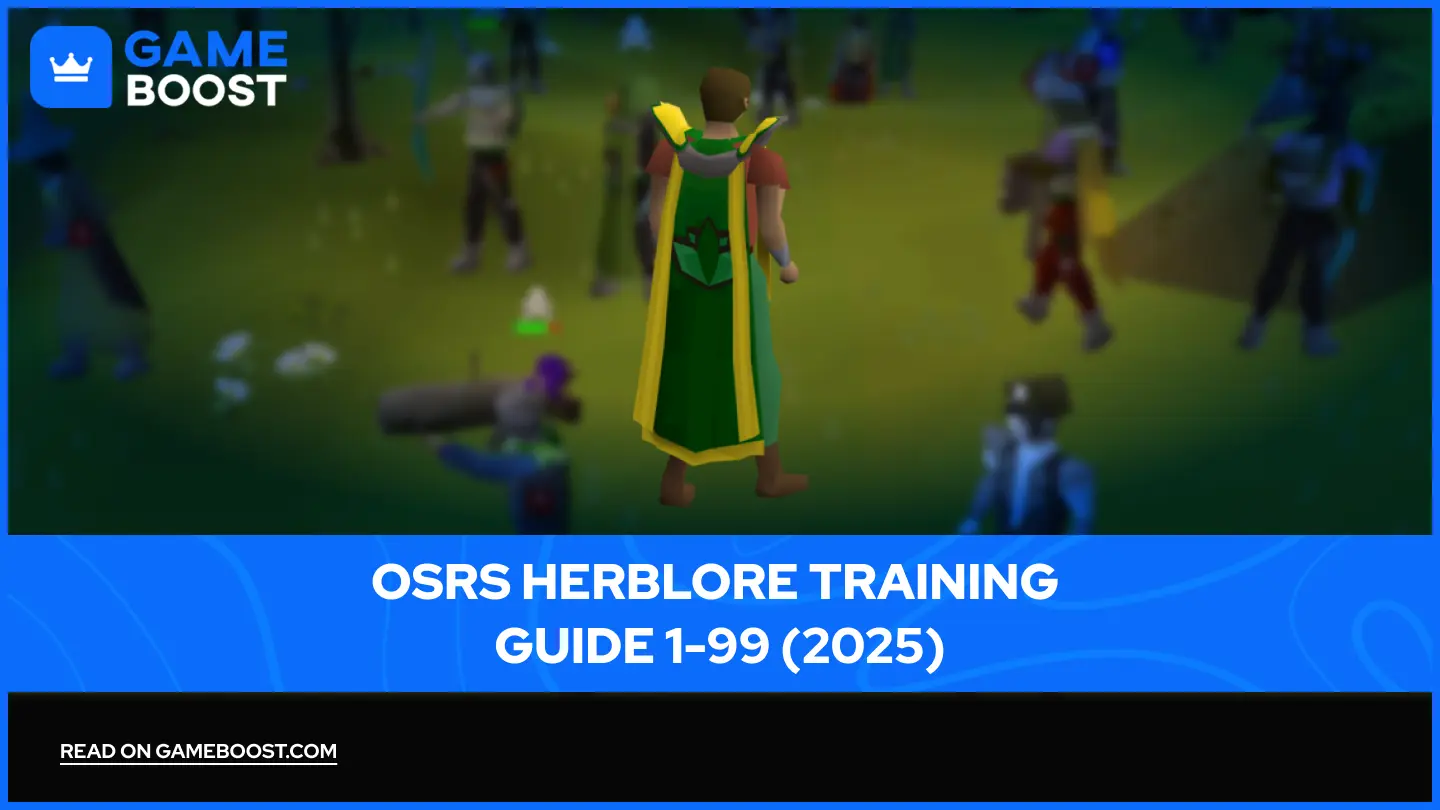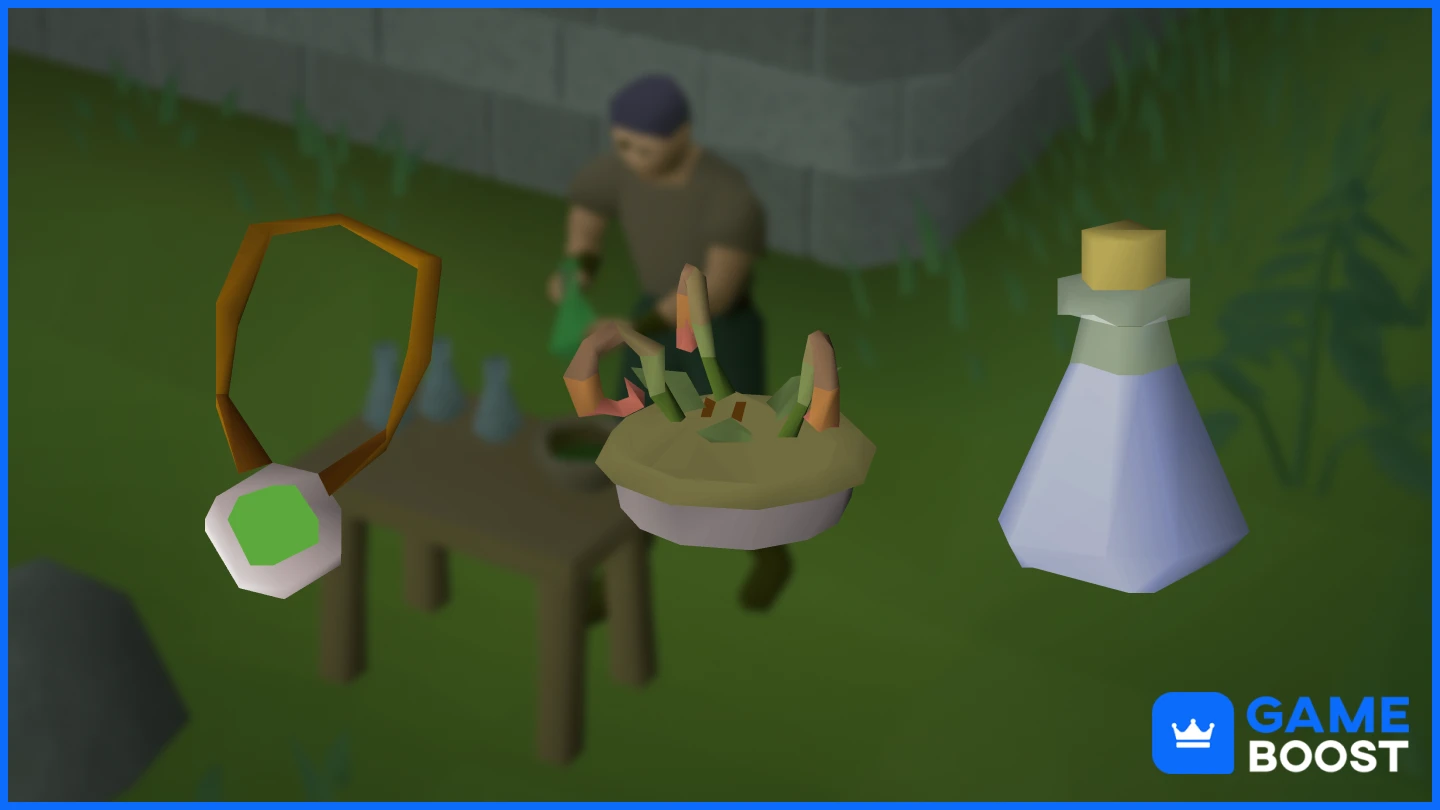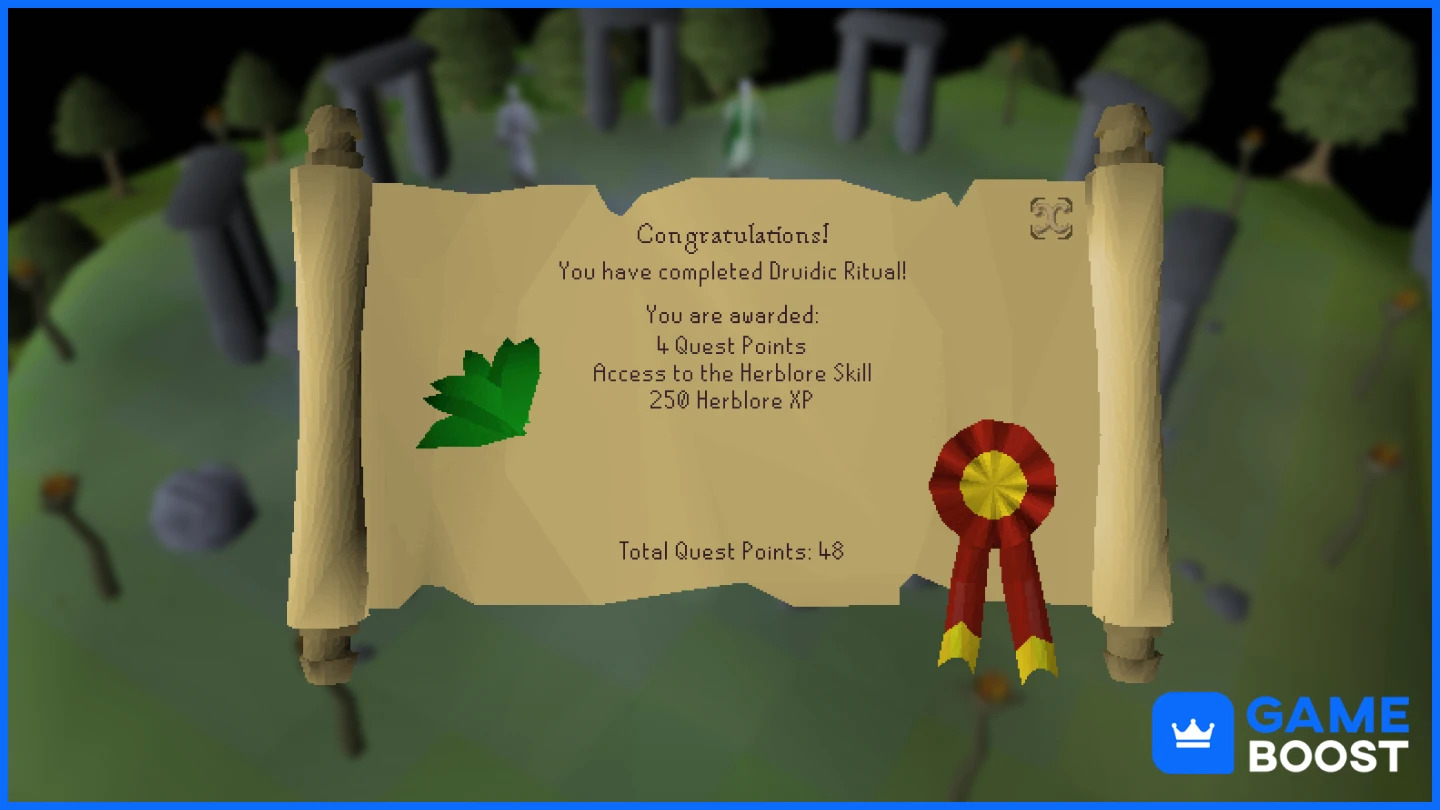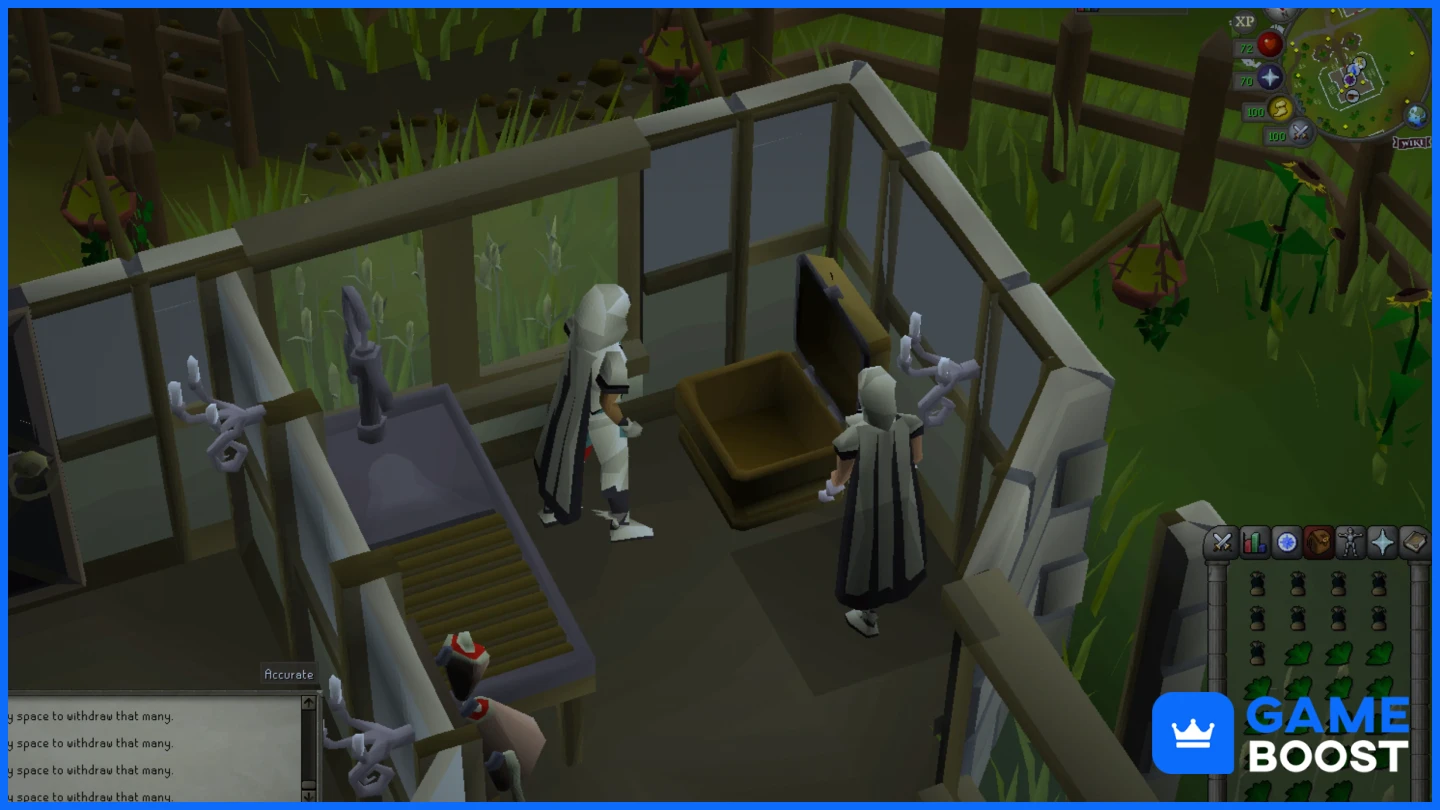

OSRS Herblore Training Guide 1-99 (2025)

Herblore is the skill that lets you turn herbs and other ingredients into potions in Old School RuneScape. These potions are the backbone of combat and skilling, boosting stats, restoring prayer, and keeping you alive during tough content. Before you can train it, you need to complete the short Druidic Ritual quest, as its reward unlocks the skill and sets your Herblore level to 3, which means you can start mixing potions right away.
Training Herblore takes planning. It’s one of the more expensive skills to level because it requires a constant supply of herbs, secondaries, and vials. But with the right approach, it’s also one of the most rewarding. At higher levels you’ll unlock potions like Prayer, Super restores, and Staminas — all of which are in high demand and incredibly useful.
Getting Started With Herblore Skill in OSRS

Herblore works in a simple loop. First, clean a grimy herb. Next, combine it with a vial of water to make an unfinished potion. Finally, add the secondary ingredient to complete the potion and gain experience.
Most herbs come from Farming, monster drops, or the Grand Exchange. They usually need to be cleaned first, which gives a small amount of XP. Every potion also requires a secondary item — things like eyes of newt, snape grass, or chocolate dust. And of course, you’ll need vials of water for every recipe. Buying them in bulk will save you a lot of time.
There are a few things worth mentioning that can help make Herblore training more efficient. The Amulet of Chemistry has a 5% chance to make a four-dose potion instead of three. Over time, that stretches your supplies further. The Botanical pie gives a +4 Herblore boost, letting you craft potions earlier than your current level. Even something simple like bank organization helps — keeping your herbs, vials, and secondaries lined up in a tab speeds up training and reduces misclicks.
For Ironman accounts, things work a little differently. Farming becomes your main source of herbs, and secondaries need to be collected directly. Because of that, herb cleaning and efficient use of every ingredient play a bigger role in your training path.
Level Milestones & Training Methods

The journey to 99 Herblore is easiest when broken into brackets. Each level range brings new potions that balance XP, cost, and usefulness.
Levels 1–15: Early Unlocks
After Druidic Ritual, you’ll start at level 3. The first potion to make is the Attack potion using Guam and eyes of newt. At level 5 you unlock Antipoisons, which use Marrentill and unicorn horn dust. At level 12, you can mix Strength potions with Tarromin and limpwurt roots.
These potions aren’t fast XP, but they’re cheap and simple. Stick with them until you reach 15.
Levels 15–22: Serum 207
At 15 Herblore, Serum 207 becomes available. It’s made with Tarromin and ashes. Each potion gives 50 XP, which is double what you get from Attack potions, and the ingredients are easy to collect or buy. This is the best choice for these levels.
Levels 22–45: Utility Potions
Here, things open up. Restore potions at level 22 are cheap and restore lowered stats, making them popular. At 26, Energy potions become available — useful for restoring run energy and easy to sell.
At level 30, you unlock Defence potions, followed by Agility potions at 34 and Combat potions at 36. At 38, Prayer potions come into play, and these are always in demand because of their importance in PvM. They’re also one of the few potions that can sometimes turn a profit.
Levels 45–63: Super Potions
From 45 onwards, you move into stronger versions of the basics. Super attack at 45 is a straightforward upgrade from the standard attack potion. Super antipoison at 48 extends poison immunity and gives more XP. Super energy at 52 is highly useful and later forms the base of Stamina potions. Super strength at 55 gives good XP but is pricier because of limpwurt roots.
The big unlock here is at 63: Super restores. They are always in demand, offer strong XP, and will carry you for many levels to come.
Levels 63–77: Core Training Stage
Super restores dominate this bracket. They restore both prayer and reduced stats, making them essential for bossing and PvP. The XP is strong, and the market demand keeps them relevant.
Other potions unlocked here include Super defence at 66, Antidote+ at 68, Antifire at 69, Ranging potions at 72, and Magic potions at 76. While some of these have niche uses or high ingredient costs, Super restores remain the most practical training method.
Levels 77–90: Stamina and Brews
At 77 you unlock Stamina potions, made by adding amylase crystals to Super energies. These potions are some of the most popular in OSRS, as players use them for PvM, skilling, and clue scrolls. They also give steady XP without draining your bank.
At 81, Saradomin brews become available. They give 180 XP per potion, making them the fastest way to train Herblore, but they’re expensive because of crushed bird’s nests. Zamorak brews at 78 and Antidote++ at 79 are also unlocked, but they’re not as widely used.
By the time you reach 90, you’ll have access to Super combat potions, which combine three boosts into one. They’re great for practical use, but the ingredients are costly, so they’re not usually made in bulk for training.
Levels 90–99: The Final Stretch
The last bracket is about choosing between cost and speed. Stamina potions remain the best balance of XP and GP. Saradomin brews provide the fastest XP/hr if you can afford them. Super combat potions are practical but expensive, and most players only make them for personal use.
At level 98, Extended super antifire potions become available, but they’re more of a completionist unlock than a training method.
Also Read: Complete 1-99 Ranged Guide for Old School RuneScape
Profit vs. Loss – Managing Costs for Herblore Training
Herblore is one of the most expensive skills to train, but how much you spend depends on your choices. Prayer potions and Super restores are often close to break-even and sometimes profitable, while Stamina potions sell quickly and usually only result in small losses. However, Saradomin brews are unmatched for XP but are extremely costly. And lastly, Super combats are valuable but not efficient for mass XP.
For Ironmen, profit isn’t a factor. Farming herbs and collecting secondaries becomes the main way to supply training. Potions like Prayer, Super restore, and Stamina are the most worthwhile, since they benefit almost every activity in the game.
Boosting XP & Herblore Training Efficiency

There are a few ways to make training more efficient. The Amulet of Chemistry saves money over time by occasionally producing four-dose potions. Botanical pies can boost Herblore by four levels, letting you make potions earlier than normal. Cleaning herbs provides small but useful XP, especially for Ironmen.
Bank organization also makes a big difference. Keeping your herbs, secondaries, and vials together speeds up the entire process. Many players also prepare unfinished potions first before adding secondaries, which makes the loop faster.
For those chasing maximum efficiency, tick manipulation exists, but it requires precise timing and is very click-intensive. For most players, it’s not worth the effort.
Also Read: OSRS Crafting Guide: Fastest Way to Level Up
Best Methods to 99 – Quick Roadmap
The most practical route for Herblore Training looks like this:
Levels 3–15: Attack, Antipoison, and Strength potions.
Levels 15–22: Serum 207.
Levels 22–45: Restore, Energy, and especially Prayer potions.
Levels 45–63: Super attack, Super energy, and then Super restores.
Levels 63–77: Stick with Super restores.
Levels 77–90: Stamina potions for balance, Saradomin brews if you can afford them.
Levels 90–99: Continue with Staminas or Brews. Use Super combats in smaller batches for utility.
Conclusion
Herblore is costly to train, but it’s one of the most valuable skills to max. From Prayer potions to Staminas and Brews, every stage of the grind gives access to potions that are vital across PvM, PvP, and skilling.
The right training path depends on your budget. Stamina potions are the safest balance of XP and GP, Super restores are the reliable staple, and Saradomin brews are the fastest option for those willing to spend. However, Ironman accounts will need to farm and gather their own supplies, but the result is the same — a skill that makes everything in the game easier.
Reaching 99 Herblore isn’t just about the cape. It’s an investment in your account’s strength and a milestone that pays off every time you prepare for a boss fight or long PvM session. With careful planning and persistence, 99 Herblore is an achievement that’s well within reach.
“ Kristina joined GameBoost in 2024 as an SEO specialist and quickly became the go-to writer for third-person shooter and competitive games. She covers titles like Fortnite, Valorant, FC 25, League of Legends, GTA 5, and Roblox, focusing on how-to guides, practical tips, and updates.”

